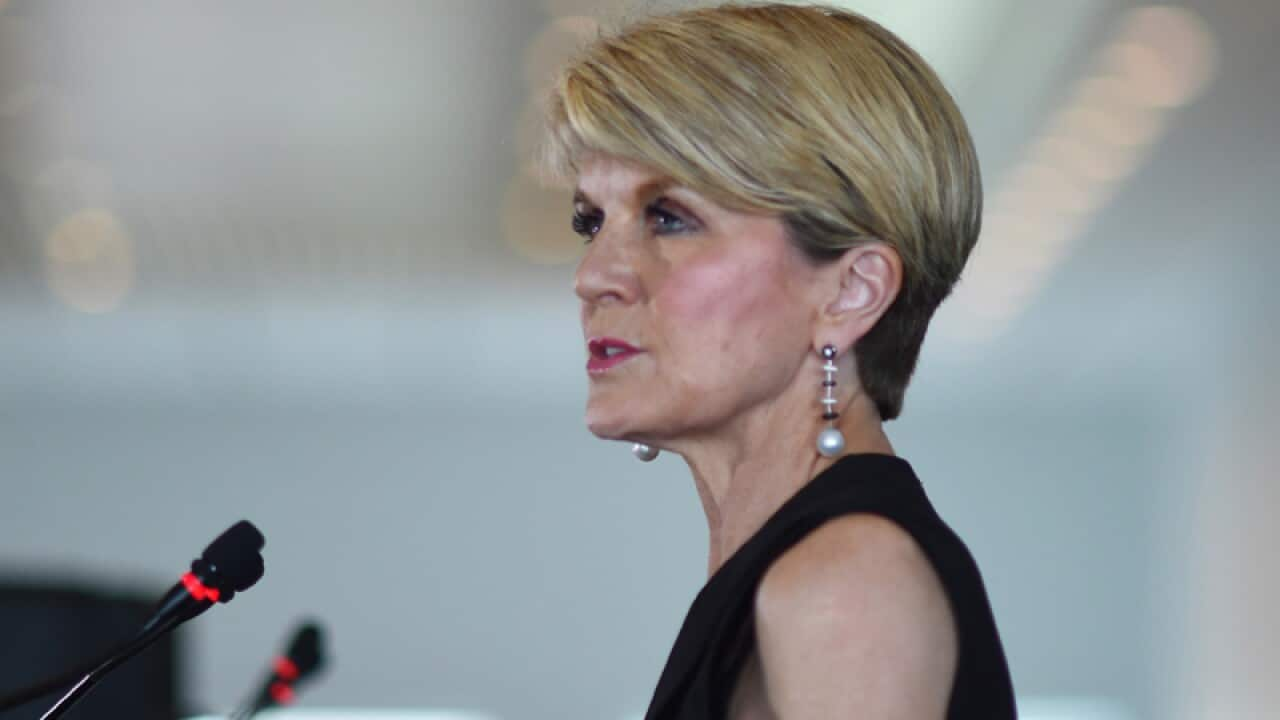More than 100 ambassadors and high commissioners will spend two days working with the prime minister and other senior government figures to help formulate a new foreign policy white paper.
Foreign Minister Julie Bishop says the meeting will focus on resetting Australia's foreign policy priorities.
"What I have asked them to do is to all come back to Australia at the one time in March so that we can harness the experience, the intellect, the observations the perspectives and insights of our most senior and experienced diplomats from around the world."
The meeting is expected to cost around $1 million.
But Ms Bishop says the government isn't spending any new money - some smaller, regional meetings around the world have been cancelled to help pay for the Canberra talks.
"Well, in fact it will be completely absorbed within DFAT's existing budget, because we will be cancelling other meetings that would have taken place. So there will be no new money required, it is to be absorbed within the existing budget of the Department of Foreign Affairs and Trade."
Nearly every head of an Australian foreign mission, apart from a few nearing the ends of their contracts, will be set to work on the 2017 Foreign Policy White Paper.
A white paper is not legislation, but rather a blueprint document that Ms Bishop says will guide the country's foreign policy for the next 10 years.
Expert in international diplomacy at the University of Adelaide, Associate Professor Felix Patrikeeff, told SBS the unusual step of bringing all of Australia's ambassadors to Canberra is a good move, given the sweeping changes in international affairs.
"Strategically, it's spot on. It is a proposal that essentially acknowledges that the foreign policy terrain has changed remarkably. The Trump revolution in international affairs is threatening to be very difficult to read indeed."
Former ambassador to the United States and former deputy prime minister, Kim Beazley, told SBS Australia's economic and military ties with the United States are vital and need to be maintained.
"One of the things you have to do, I think, in relations with the United States, is to make sure that whatever happens that that area is not affected by any particular difficulties you have with American leadership."
Mr Beazley says the ambassadors will contribute valuable ideas to the white paper, but disagrees with the need for such a document in the first place.
He says foreign policy is too adaptive to be planned in a White Paper.
“It works for Defence, because Defence has to put down a program with dollar signs attached to it, they have to make selections amongst various types of equipment,” he said.
“Foreign policy is more nebulous, it’s much more a reaction to events. Generally speaking you always want to lay down a set of principles, but events are likely to take you over pretty quickly.
“I hope that the government in the policies that it puts down will indicate a degree of flexibility."
The last Foreign Policy White Paper was published by the Howard Government in 2003, but a more specific 'Australia in the Asian Century' white paper was released by the Gillard government in 2012.
Deputy Labor leader Tanya Plibersek says the Coalition wasted that report when it won the election.
"This government came in and junked the Australia in the Asian Century white paper, something that was just an extraordinary act of vandalism. They've replaced it with nothing. There's been no policy development in those intervening three years."
Mr Patrikeeff says the new focus will likely look beyond Asia.
"I think it will probably be to suggest that there is a seismic movement in terms of foreign affairs and it's no longer adequate to just talk in terms of the Asian Century, which has actually been left behind in some respects. It's still a very, very important area, but it's no longer a focus internationally."
Along with America's new foreign policy approach under President Trump, Mr Patrikeeff names tensions in South East Asia and Britain's decision to leave the European Union as major global challenges.
Australia-Indonesia relationship back on track











